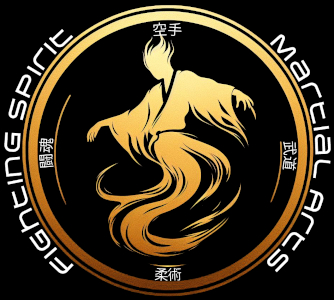As a martial artist, I’ve had the privilege of being part of the Snow Tiger Martial Arts Association, founded by Sensei Robert Walther. This association comprises several dojos, including my home dojo, Trent Valley Karate and Jiu-Jitsu. One of the most significant advantages of being part of this organization is the open-door policy that allows us to train at any of the member dojos. However, I’ve noticed that not many students are aware of this opportunity or simply don’t take advantage of it – often sticking to their routine and comfort zone.
Cross-club training is a beautiful thing that can enrich your practice in many ways. It allows you, as a martial artist, to learn “more than one way to throw a punch,” figuratively speaking. By training under different instructors and at various clubs, you can diversify your techniques, as each dojo and instructor brings a unique teaching style and perspective. By breaking out of your usual routine, you may discover new methods that open your eyes and elevate your practice.
In the early days of martial arts, it was common for practitioners to travel from one instructor to another, seeking to learn their techniques and add them to their repertoire. This tradition of constant learning and growth was essential for martial artists in feudal Japan, where combat skills were a matter of life and death. While the stakes may be different today, I believe that embracing this spirit of exploration and diversity is just as important.
Cross-club training can help you gain new perspectives and insights into your martial arts journey. When you learn techniques from different instructors, you may find that they have different ways of explaining or demonstrating them. This can help you understand the technique more deeply and make connections that you hadn’t before. Additionally, cross-club training can help you break out of bad habits or ruts that you may have fallen into in your training. When you learn a new way of doing something, it can help you recognize areas where you may have become too comfortable in your approach.
Another significant benefit of cross-club training is the opportunity to network with other martial artists. When you train at different clubs, you’ll meet new people and make new connections. This can be especially valuable if you’re looking to compete in martial arts tournaments or explore different styles of martial arts. By building a network of contacts in the martial arts world, you can open up new opportunities for growth and development.
Finally, cross-club training can be a fun and exciting adventure. When you step outside of your comfort zone and try something new, you may be surprised at how much you enjoy it. You may discover a new instructor or club that you love and want to train with regularly. Or, you may just enjoy the experience of trying something new and different.
In conclusion, cross-club training in martial arts can be a fantastic way to diversify your skills, gain new perspectives, and enhance your journey as a martial artist. So, if you have the opportunity to train at a different club or with a different instructor, I encourage you to take it. You never know what you might learn, who you might meet, or how it may transform your martial arts practice. Embrace the adventure!
